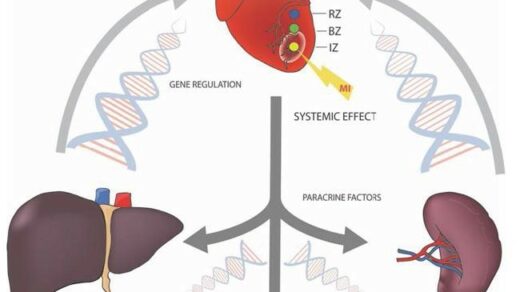In this new study, researchers present the first retrospective study evaluating differential gene expression of MIF, DDT, and relevant pathway markers in relation to clinical outcomes in melanoma patients.
—
Macrophage Migration Inhibitory Factor (MIF) and its homolog D-dopachrome Tautomerase (DDT) have been implicated as drivers of tumor progression in various cancers. Recent evidence suggests that MIF could be a therapeutic target in immune checkpoint inhibition (ICI) resistant melanomas; however, clinical evidence for MIF, and particularly for DDT, remains limited.
Researchers Caroline Naomi Valdez, Gabriela Athziri Sánchez-Zuno, Lais Osmani, Wael Ibrahim, Anjela Galan, Antonietta Bacchiocchi, Ruth Halaban, Rajan P. Kulkarni, Insoo Kang, Richard Bucala, and Thuy Tran from Yale University; Oregon Health and Science University; Cancer Early Detection Advanced Research Center (CEDAR); and the Department of Veterans Affairs Portland Health Care System analyzed 97 patients treated at Yale for melanoma between 2002–2020. Their research paper was published in Oncotarget’s Volume 15 on July 19, 2024, entitled, “Prognostic and therapeutic insights into MIF, DDT, and CD74 in melanoma.”
In their study, the researchers noted that melanoma is one of the most aggressive and lethal forms of cancer, with an estimated 99,700 new cases expected in 2024. The development of immune checkpoint inhibitors (ICIs) has significantly transformed cancer treatment and is now a cornerstone for managing several cancers, including advanced melanoma. Anti-CTLA-4 inhibitors, which target regulatory T cells, and anti-PD-1/L-1 inhibitors, which target activated T cells, dendritic cells, and tumor cells, have reshaped melanoma management, leading to improvements in progression-free and overall survival, with up to 22% of patients experiencing a complete response (CR). Data suggests that the ratio of CD74:MIF and CD74:DDT expression in melanoma may provide prognostic value and potentially serve as clinical biomarkers for patients with melanoma.
The study significantly expands on previous research by including a larger cohort of individuals and employing a comprehensive approach to defining high and low MIF and DDT expression. The survival analysis findings are consistent with existing literature, demonstrating that increased MIF levels are associated with worse prognosis in patients with melanoma, particularly in those with advanced disease or evidence of metastases.
The data presented in this research paper supports existing evidence on the intratumoral effects of MIF and DDT on tumor permissiveness, primarily through immune modulation, with implications for melanoma prognosis. The findings suggest that MIF and DDT may serve as therapeutic targets and biomarkers for predicting treatment response and survival, with CD74:MIF and CD74:DDT showing promise as markers of ICI response in patients undergoing treatment. Further investigation is needed to fully understand the role and functions of DDT in the melanoma microenvironment, as well as its distinct, non-overlapping functions in tumorigenesis.
“Our study is the first to report survival findings in association with intratumor DDT expression and CD74:DDT expression level ratio.”
Click here to read the full research paper in Oncotarget.
—
Oncotarget is an open-access, peer-reviewed journal that has published primarily oncology-focused research papers since 2010. These papers are available to readers (at no cost and free of subscription barriers) in a continuous publishing format at Oncotarget.com.
Oncotarget is indexed and archived by PubMed/Medline, PubMed Central, Scopus, EMBASE, META (Chan Zuckerberg Initiative) (2018-2022), and Dimensions (Digital Science).
Click here to subscribe to Oncotarget publication updates.
For media inquiries, please contact media@impactjournals.com.



